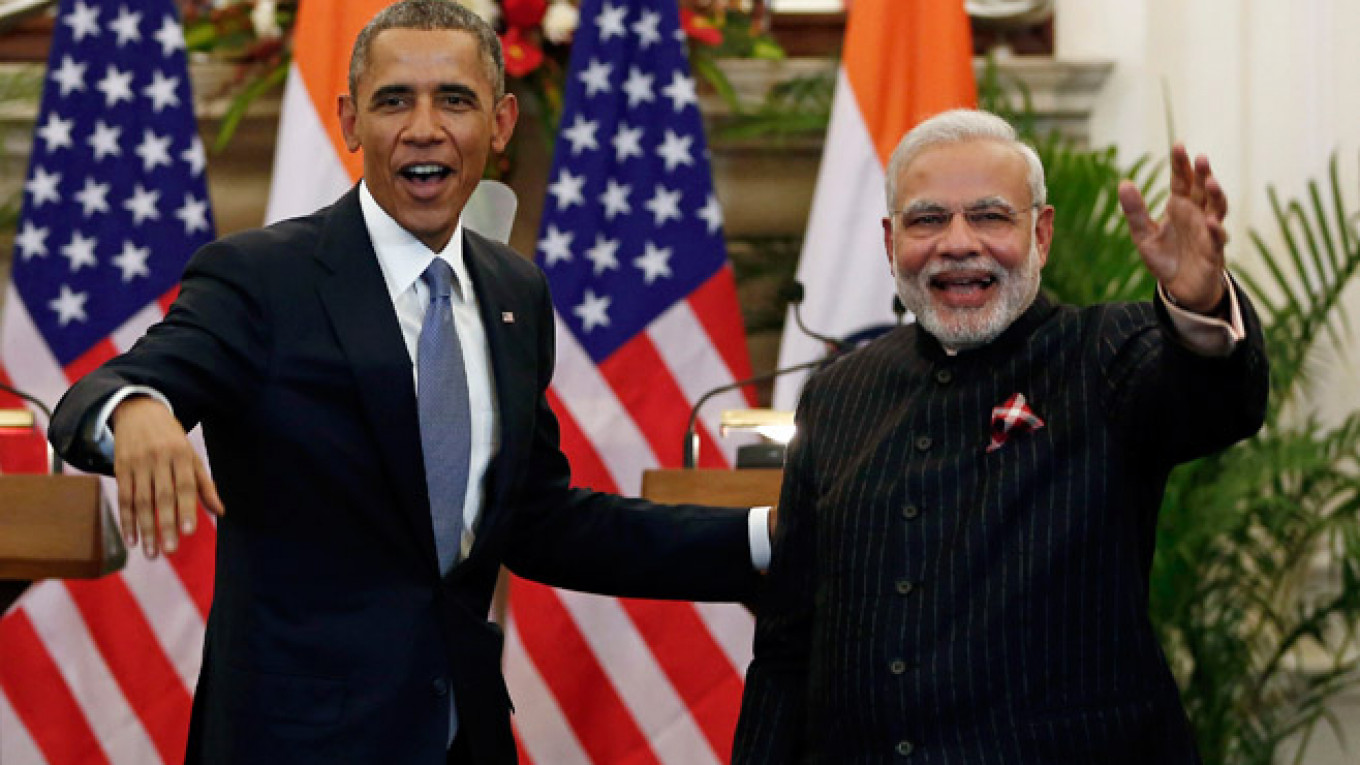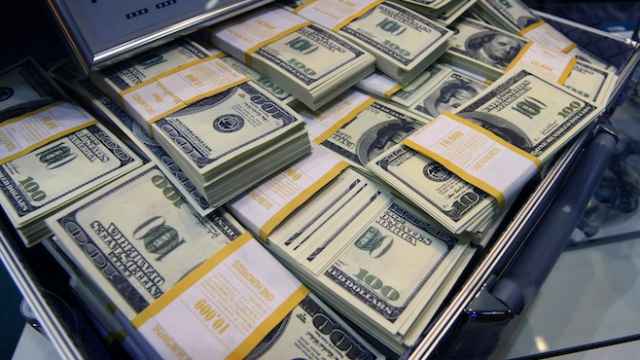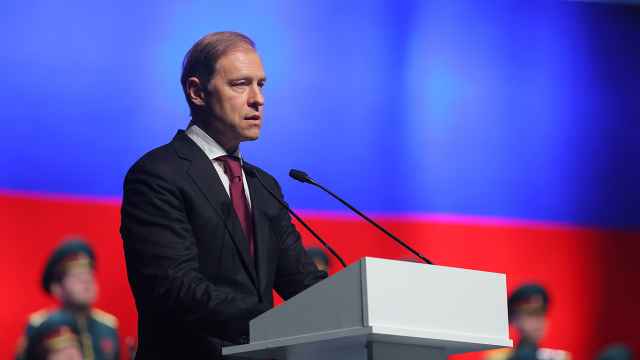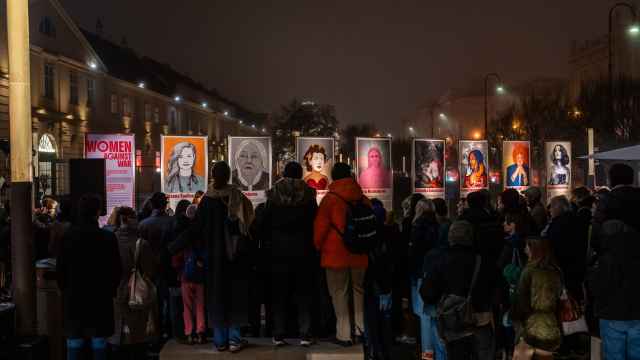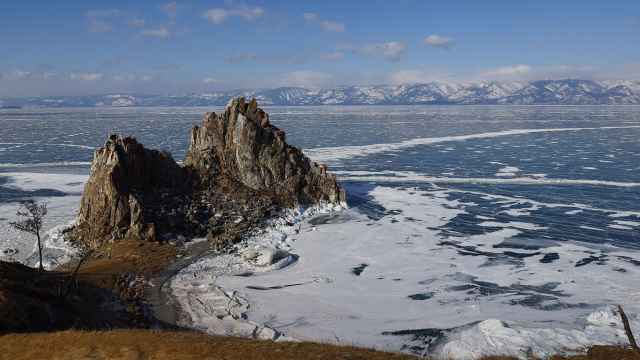In the wake of a visit by U.S. President Barack Obama to India last week that yielded an announcement of vastly increased bilateral trade, Russia is eyeing the budding friendship between the two countries warily.
Some in Moscow are apparently concerned that Russia may lose out as a result of closer relations between its traditional ally and arms client on the subcontinent and the U.S. at a time when Russia is seeking to increase its traditionally lucrative trade with India to offset Western sanctions.
"There are some people in the Russian political elite who worry about close relations between India and the United States," said Pyotr Topychkanov from the Carnegie Moscow Center think tank.
"They think that India is a battlefield between the U.S. and Russia, just as Ukraine is a battlefield and Syria was a battlefield."
Traditional Allies
As Russian-U.S. relations hang in tatters over the Ukraine crisis, the United States has told its partners that "now is not the time" to do business with Moscow. India, however, has refused to take a position on Ukraine, opposed Western sanctions and continued to sign trade deals with Russia, a traditional ally and arms trade partner since Soviet times.
Russian Foreign Minister Sergei Lavrov met with his Indian counterpart Monday ahead of trilateral talks with the Chinese foreign minister in Beijing.
"We had a frank, meaningful conversation," Lavrov said. "We confirmed the concurrence, or similarity of Russia, India and China on the global situation as a whole."
Russian officials have been actively courting India in recent months. Defense Minister Sergei Shoigu visited New Delhi in January, just a month after a trip by President Vladimir Putin that facilitated an estimated $100 billion worth of new deals for Russian companies.
"It's part of an attempt by Russia to reach out to partners who can help Russia at a time of economic difficulty. India in this context is extremely important," Topychkanov told The Moscow Times.
New Rival
But now Russia is facing stiffer competition. Following Obama's visit to New Delhi last week, India and the United States last week published a "joint strategic partnership" and announced a plan to increase trade fivefold, a breakthrough in civil nuclear trade and an agreement to co-produce military technology.
The agreements, which prompted international media to dub the relationship between Obama and Prime Minister Narendra Modi a "bromance" and sparked talk of an Indian foreign policy tilt towards Washington, would greatly increase the $1.9 billion that India currently spends on importing U.S. arms, with the subcontinent nation set to spend an estimated $130 billion on modernizing its military in the next seven years. IHS Jane's estimates that it will become the world's fourth-largest military spender by 2020.
Seventy percent of India's existing arms were purchased from Moscow. The irony was not lost on observers when a two-hour procession of Russian-made tanks, jets and missiles filed past Obama, the guest of honor at last Monday's India Republic Day parade, in India's annual display of military might.
Modi, who has hailed both India's "incomparable" partnership with Russia and its "strategic, global" partnership with the United States, is engaged in a diplomatic juggling act trying to keep multiple global powers happy as his government courts investment.
No Decline
Despite the growing closeness between India and the United States, former Indian ambassador and founder of Gateway House think tank Neelam Deo said Russian-Indian relations are not becoming weaker.
"The sectors in which we have a strong relationship remain very important: defense, nuclear energy, space cooperation," Deo said. "Russia knows we have a huge dependency on them for our defense equipment, even though we have diversified."
As India looks to diversify its supply of weapons, Russia has reached out to Pakistan, India's arch-rival, and may sell them three dozen military helicopters later this year, The Washington Post reported.
"The Indian government is not happy about this, but it was coming," Deo told The Moscow Times. "Russia is looking for other countries to buy their exports, so India, who will not be happy, has to live with it."
Room for Growth
Despite receiving 75 percent of its arms imports between 2009-13 from Russia, India does not count Russia among its top 15 trade partners overall. Deo said that Russia must work harder to develop the commercial side of its relationship with India, citing the energy sector and visa requirements as key areas for improvement.
"The business component of the relationship is weak, we don't have the people-to-people relationships of the sort that we have in the U.S., where there's a large Indian community living there," Deo told The Moscow Times.
"Russia itself has not worked hard enough in building energy relationships with India, which we are desperately short of and which is Russia's main export."
Contact the author at [email protected]
A Message from The Moscow Times:
Dear readers,
We are facing unprecedented challenges. Russia's Prosecutor General's Office has designated The Moscow Times as an "undesirable" organization, criminalizing our work and putting our staff at risk of prosecution. This follows our earlier unjust labeling as a "foreign agent."
These actions are direct attempts to silence independent journalism in Russia. The authorities claim our work "discredits the decisions of the Russian leadership." We see things differently: we strive to provide accurate, unbiased reporting on Russia.
We, the journalists of The Moscow Times, refuse to be silenced. But to continue our work, we need your help.
Your support, no matter how small, makes a world of difference. If you can, please support us monthly starting from just $2. It's quick to set up, and every contribution makes a significant impact.
By supporting The Moscow Times, you're defending open, independent journalism in the face of repression. Thank you for standing with us.
Remind me later.


